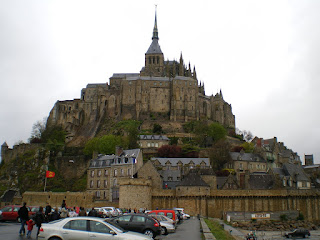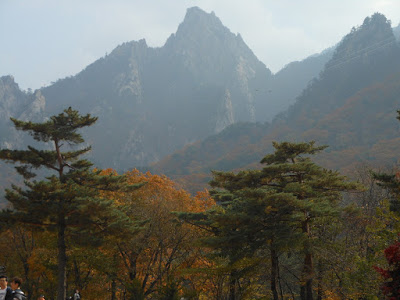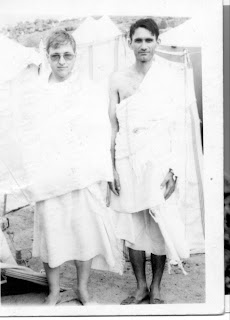 |
| Postcard I sent my parents from Ivalo, Finnish Lapland, Sep. 1971 - Stamp removed for collection |
This is a story I wrote elsewhere about a short trip I took at age 20 in 1971 when I worked for Luxair Luxembourg Airlines. At the time I gave all the money I earned to my parents, which was a condition my father imposed until I would reach the then-legal age of majority of 21. He always gave me some pocket money and a little extra for my vacations.
After one year of service with Luxair I was entitled to one free round-trip flight within Europe on certain airlines but didn't want to fly to one of the typical tourist destinations. Yet I wanted to travel as far a possible. Looking at a map it seemed to me the farthest I could go was Ivalo in Finnish Lapland, the northernmost airport in Finland. At that time Finnair offered flights between Luxembourg and Helsinki with a short stopover in Gothenburg, Sweden.
I arrived at Ivalo airport on 6 September 1971 after changing planes in Helsinki and Oulu. As far as I can remember there was only one building that looked like a log cabin at the airport. Apart from the Convair Metropolitan 440 propeller plane on which I arrived there was one other aircraft on the tarmac, a DC-3 with the letters NOAA painted on it.
At the hotel in town I met some of the passengers of the DC-3. They were scientists from the US National Oceanic and Atmospheric Administration (NOAA) studying weather patterns in the Arctic.
I had read about Hammerfest in Norway as the northernmost large town in Europe and thought I might try to hitch-hike there. The next morning I started walking along the main road north from Ivalo, holding out my thumb every time a car passed. There was very little traffic but I quickly got my first ride up to Inari. Later in the day a young woman not much older than I picked me up and invited me for a beer and a smoke on the balcony of her cottage at Utsjoki. She told me a lot about northern Finland, which I found very interesting.
Some time in the afternoon I got a ride with two ladies in an old car crossing the border into Norway and all the way up to Rustefjelbma near where the salmon-rich Tana River flows into the Tanafjord. By this time the sun was already low on the horizon and I found a good place to sleep among some shrubs not far from the road. As I started to pull my sleeping bag out of my big US Navy seabag a car came up on the road. On the spur of the moment I decided to try to hitch another ride.
The driver, a man about 40 years old, stopped and told me he was going west, which was the direction I needed to go if I wanted to reach Hammerfest. He told me he would drop me off in a place called Ifjord and then head north on a different road to catch a boat going to a remote village on Nordkinn, if I remember correctly. I quickly closed my seabag and joined him in the car. Darkness fell as we drove on a road along the southern end of Tanafjord and across the neck of the Nordkinn Peninsula. Not much later it started raining. The man, who spoke very good English, told me about his travels in India and other places.
When he dropped me off at Ifjord it was pitchdark and cold and windy outside, and a heavy rain kept beating down. He asked if I was okay and I said confidently that I could protect myself from the rain. So he drove off into the night.
I looked around. There was not even the tiniest speck of light to be seen anywhere. I couldn't see anything at all. Not far away I heard water running and thought there was a creek nearby. I put a large sheet of plastic on some higher ground away from the water and laid my sleeping bag and the seabag on it. After slipping into the sleeping bag I wrapped the plastic sheet around myself and tucked it under me but found I had to hold onto it because the wind kept blowing it loose. Soon I had an intense headache. I could not sleep at all that night.
The rain stopped before the sun rose in the morning, but I and all my gear was soaking wet. I saw two or three small houses not far away but they seemed uninhabited at this time. There was no sign of life at all. Luckily my head no longer ached.
In my heavy seabag I had a camping gas cooker, which I lit to get some warmth. I hung some of my wet clothes and the sleeping bag on a branch of a small tree nearby and put the burning gas stove under them. Gradually I was able to dry most of my clothing this way.
A little later in the morning a jeep-type car came up the gravel road from the same direction I had come the night before. When I signalled to request a ride the driver stopped and let me sit next to him. He spoke only Norwegian and tried to tell me something I didn't understand. After a few kilometers he stopped at an open area where some large road building machines were parked and indicated to me this was as far as he was going.
I continued on foot up a low hill from where I caught a view of a beautiful wide inlet with dark blue water, my first glimpse of the Barents Sea. It was a corner of the Laksefjord. I followed the road down to the gravelly beach, where I saw a few small houses beside the road and some rowboats in the water on the other side. An old man stood by the road and when he saw me he seemed very surprised, as if I was an apparition. I greeted him but he didn't utter a word. Judging from his reaction I thought he might be wondering if I was a ghost. I continued about a kilometer up a hill past the houses and when I looked back the old man was still staring in my direction.
Shortly afterwards a herd of reindeer crossed the road just 20 meters or so in front of me. I don't think I had ever seen reindeer before. They are very beautiful animals. This herd seemed tame but I didn't see any humans with them. As I didn't want to frighten them I kept my distance and stopped by the side of the road to let them pass. The reindeer didn't pay much attention to me but suddenly I was attacked by a swarm of very aggressive flies that must have accompanied them. Some of the insects sat on my glasses and tried to get into my eyes, and I was flapping my hands wildly to chase them away.
After the reindeer passed the flies were gone just as suddenly as they had appeared.
A car came up the road from the direction of Ifjord and I held out my thumb. The driver, a middle-aged man, stopped and let me sit beside him. He didn't speak much but I found out he was on his way to Lakselv, about 100 kilometers away to the southwest.
After about an hour of driving we passed through the village of Borselv and then I saw one of the most spectacular sights I had glimpsed until this day: the Porsanger Fjord. As we drove south along the inlet's east bank I could not take my eyes off the view of the sea, the hills on both sides, the islands in the middle and the many birds everywhere.
After the man dropped me off at Lakselv I thought about whether I was ready to continue hitch-hiking to Hammerfest. I had plenty of time as I had taken two weeks' leave from work for this trip. But I didn't think I had enough money to stay in hotels. Remembering that horrible night at Ifjord I felt I really wouldn't want to go through such an experience again on this trip. It had been my first night outside in such rough conditions and it demoralized me more than I realized at first. So I decided to go south, back to Ivalo, and to forget about Hammerfest. I chickened out. Although it was not the first time I lost courage like this it sticks in my memory as an event that foreshadowed many others. Perhaps my father had been right to call me a wimp, a coward, although I am sure his intent was to stoke my pride hoping I would overcome my fear.
As I walked along the road leading south from Lakselv the air around me was suddenly filled with the ear-shattering noise of powerful jet engines. Three F-104 Starfighter jets passed just above me at great speed and then disappeared over the horizon far ahead.
A little later a young man in a pickup truck took me to Karasjok near the border of Finland. When we arrived it was late in the afternoon, so I walked out of the village and found a place in a big meadow with some trees and shrubs where I could camp for the night. I laid my plastic sheet on the ground under my sleeping bag and wrapped it around me as I had done at Ifjord. There was no wind and no rain this time, and as I was quite tired I fell asleep fairly quickly.
Next morning I woke up because I felt someone pushing against my sleeping bag. It was a male sheep (it might have been a goat – I don't remember for sure), apparently incensed that I had taken over one of its favorite grazing spots. There were several other sheep all around me in the meadow. I quickly packed my belongings into my seabag and headed back to the road.
Not much later a middle-aged man in a Volkswagen Beetle picked me up. He spoke only Finnish. I told him I was on my way to Ivalo, and he indicated to me he was going there too. He took me across the border to Karigasniemi and then Kaamanen, where he stopped and told me something in Finnish. I understood he had some business to take care of in this village before heading down to Ivalo. After about an hour or so he returned to the car and took me the rest of the way.
At Ivalo I booked into the same hotel where I had stayed a few days earlier. I didn't feel like spending another day in the village, so I decided to take a flight to Helsinki the next morning.
When I arrived at Helsinki airport I realized I would not be able to go to the city for some reason I don't remember now. I don't know if I felt I couldn't afford staying in a hotel there because I didn't have enough money or some other problem. At any rate I do remember spending a night in a kind of transit lounge at the airport, aided by Finnair staff. The next day I caught a direct Finnair flight back to Luxembourg.
The experience of this very short trip to Finland and Norway left a deep impression on me, which is why I remember some details I have forgotten from other, much longer journeys. Yet I missed many of the most spectacular sights of Lapland and the mainland European Arctic, such as the Northern Lights or the midnight sun.
Today I cannot understand why I never thought of buying a camera and taking pictures on my trips. My father always had both a still picture and a movie camera, and used both frequently. Of course, seeing how he took photographs it seemed very complicated. He used a light meter almost every time, and adjusted his aperture and exposure settings according to the readings of that device. Also, film and development were expensive, and I may have felt I couldn't afford taking photographs. Yet today I regret very much not having a pictorial record of my early travels other than a few picture postcards.


















